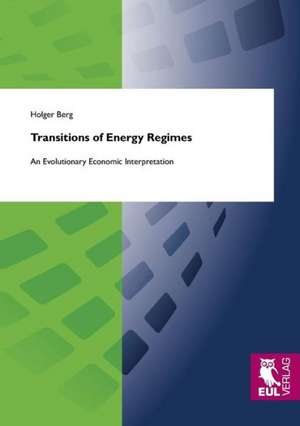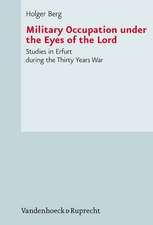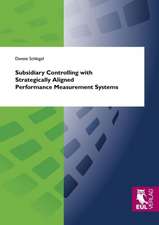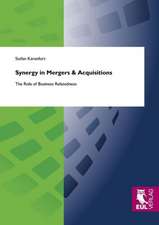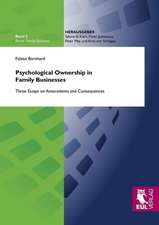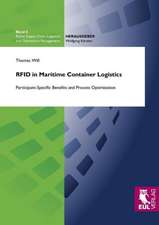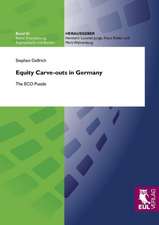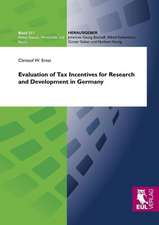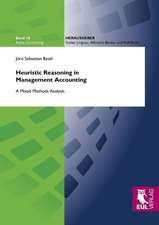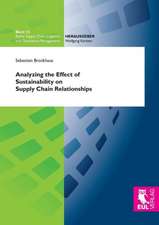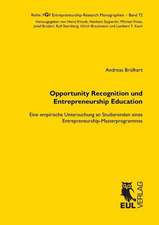Transitions of Energy Regimes
Autor Holger Bergen Limba Engleză Paperback – 20 feb 2013
Preț: 496.76 lei
Preț vechi: 613.27 lei
-19% Nou
Puncte Express: 745
Preț estimativ în valută:
95.05€ • 99.51$ • 78.65£
95.05€ • 99.51$ • 78.65£
Carte disponibilă
Livrare economică 17-31 martie
Preluare comenzi: 021 569.72.76
Specificații
ISBN-13: 9783844102253
ISBN-10: 3844102256
Pagini: 352
Dimensiuni: 148 x 210 x 22 mm
Greutate: 0.42 kg
Editura: Josef Eul Verlag GmbH
ISBN-10: 3844102256
Pagini: 352
Dimensiuni: 148 x 210 x 22 mm
Greutate: 0.42 kg
Editura: Josef Eul Verlag GmbH
Cuprins
1 Introduction1.1 Preamble1.2 Research Objectives and Focus of the Study1.3 Outline of the Thesis2 Perceptions of Energy Regime Transitions - Empirical Evidence, Theoretical Accounts and the History of Economics2.1 Transition of Energy Regimes as a Historical Phenomenon2.2 Resource Exhaustion and Innovation as Causes for Transitions of Energy Regimes in the Body of Economic Literature and Theory2.3 Exhibit I: Comparing the Treatment of Resource Depletion in Economics Then and Now - William S. Jevons's "The Coal Question" and the Peak Oil Hypothesis2.4 Summary: Energy Transitions as Historical Subject and Concern for Economic Theory3 Complexity Theory as a Potential Interpretational Framework towards an Evolutionary Economic Analysis3.1 Evolutionary Economics - Background and Overview3.2 Complexity Theory3.3 Exhibit II: A First Cautious Approach: Applying Path Dependence, Irreversibility and Historicity to the Oil Regime and the Peak Oil Phenomenon3.4 Evaluation and Summary: Complexity Theory as a Potential Interpretative Framework4 Transitions of Energy Regimes in the View of Complexity Theory - Interpretation and Evaluation of the Approach4.1 An Interpretation of Transitions in Energy Regimes through the Application of Complexity Theory4.2 Critical Evaluation of the Approach4.3 An Empirical Analysis of Agent-based Political Intervention: Entrepreneurship Policy in the Context of Energy Regime Transitions4.4 Subsuming the Evaluation - Limitations and Desiderata5 Evolutionary Economic Explorations into Energy Regime Transitions - Contributions from this Study and the Promise of a Field for Research5.1 Potential Contributions of the Thesis to Evolutionary Economics5.2 Energy Regime Transitions as a Prospective Field of Research for Evolutionary Economics6 Conclusion
Notă biografică
Holger Berg studied at the University of Wuppertal and was awarded the FGF Diploma Award 2003 for his analysis on ¿The Evolution of the Nascent Enterprise from a Resource-based View Perspective¿. His interests focus on entrepreneurship, creativity, entrepreneurship policy, renewable energies, the Emergence and Evolution of Energy Regimes, and succession in SMEs. 2009-2012 he was managing director of the Institute for Entrepreneurship and Innovations Research and member of the UNESCO Chair of Entrepreneurship and Intercultural Management. He is visiting lecturer at ASE Bucharest, the Technical University of Kosice and University of Applied Sciences Rhein Waal. He is involved with knowledge transfer, urban development, voluntary work, and a consultant to Start-ups.
